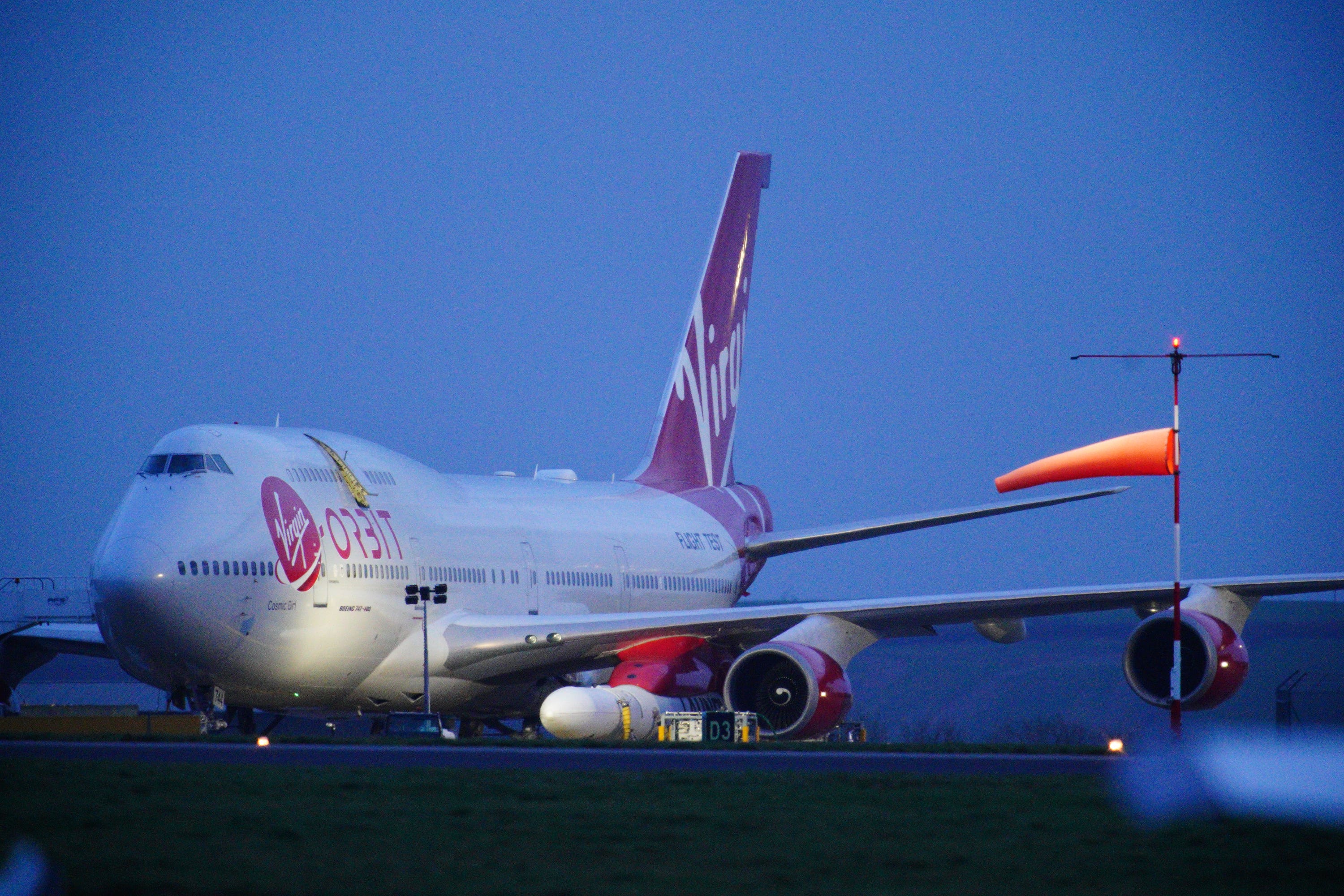Virgin Orbit makes British space history with take-off ahead of rocket launch
The Start Me Up mission lifted off from the runway at Cornwall Airport Newquay.

Your support helps us to tell the story
From reproductive rights to climate change to Big Tech, The Independent is on the ground when the story is developing. Whether it's investigating the financials of Elon Musk's pro-Trump PAC or producing our latest documentary, 'The A Word', which shines a light on the American women fighting for reproductive rights, we know how important it is to parse out the facts from the messaging.
At such a critical moment in US history, we need reporters on the ground. Your donation allows us to keep sending journalists to speak to both sides of the story.
The Independent is trusted by Americans across the entire political spectrum. And unlike many other quality news outlets, we choose not to lock Americans out of our reporting and analysis with paywalls. We believe quality journalism should be available to everyone, paid for by those who can afford it.
Your support makes all the difference.The Virgin Orbit plane carrying the first rocket to launch into space from UK soil has taken off from Spaceport Cornwall.
As the Start Me Up mission lifted off from the runway at Cornwall Airport Newquay, hundreds of people cheered and Start Me Up by the Rolling Stones was blasted out on loudspeakers.
Named in tribute to the Stones’ 1981 hit, the mission involves a repurposed Virgin Atlantic Boeing 747 and Virgin Orbit’s LauncherOne rocket.
The 747, dubbed Cosmic Girl, took off horizontally from the new facility while carrying the rocket under a wing.
Around an hour into the flight the rocket will be released at 35,000ft over the Atlantic Ocean to the south of Ireland.
The plane will then return to the spaceport while the rocket will ignite its engine and take multiple small satellites, with a variety of civil and defence applications, into orbit.
Before the launch, the team behind the historic moment spoke of their immense excitement as they prepared for take-off.
Ian Annett, deputy chief executive at the UK Space Agency, described his “immense excitement”.
“Who would not be excited by the fact this is the first time that it has been done in Europe? That’s because it’s hard,” he said.
“There is a point where the training takes over and you fall into that rhythm of the teams knowing what they need to do.
“They know when they need to make the decisions they need to make.
“I would say the real achievements here are not the successes that you can necessarily see but all of the challenges that collectively as a team people have overcome.
“The culmination of all of that is putting these exciting missions into space. It’s the things at the pointy end of the rocket that really matter.”